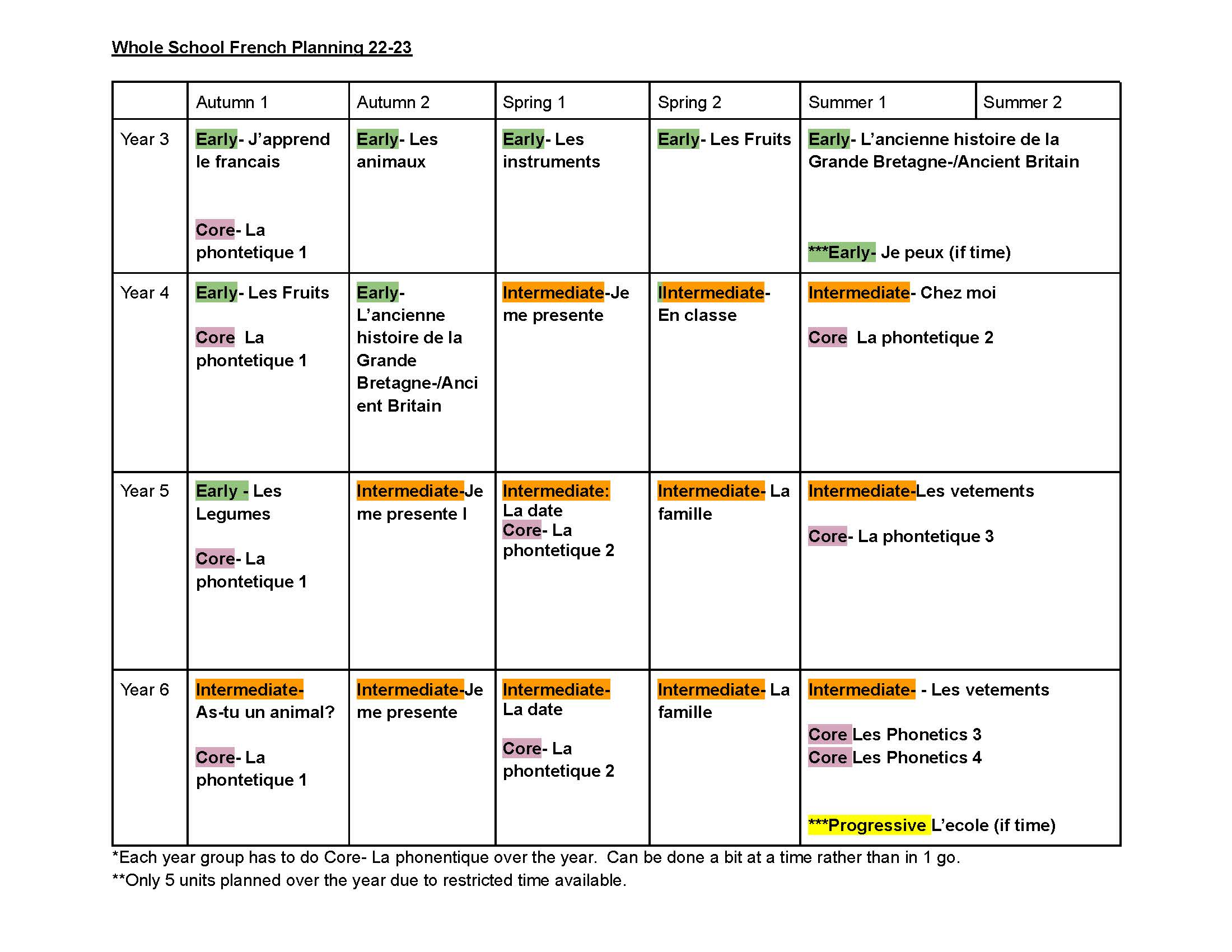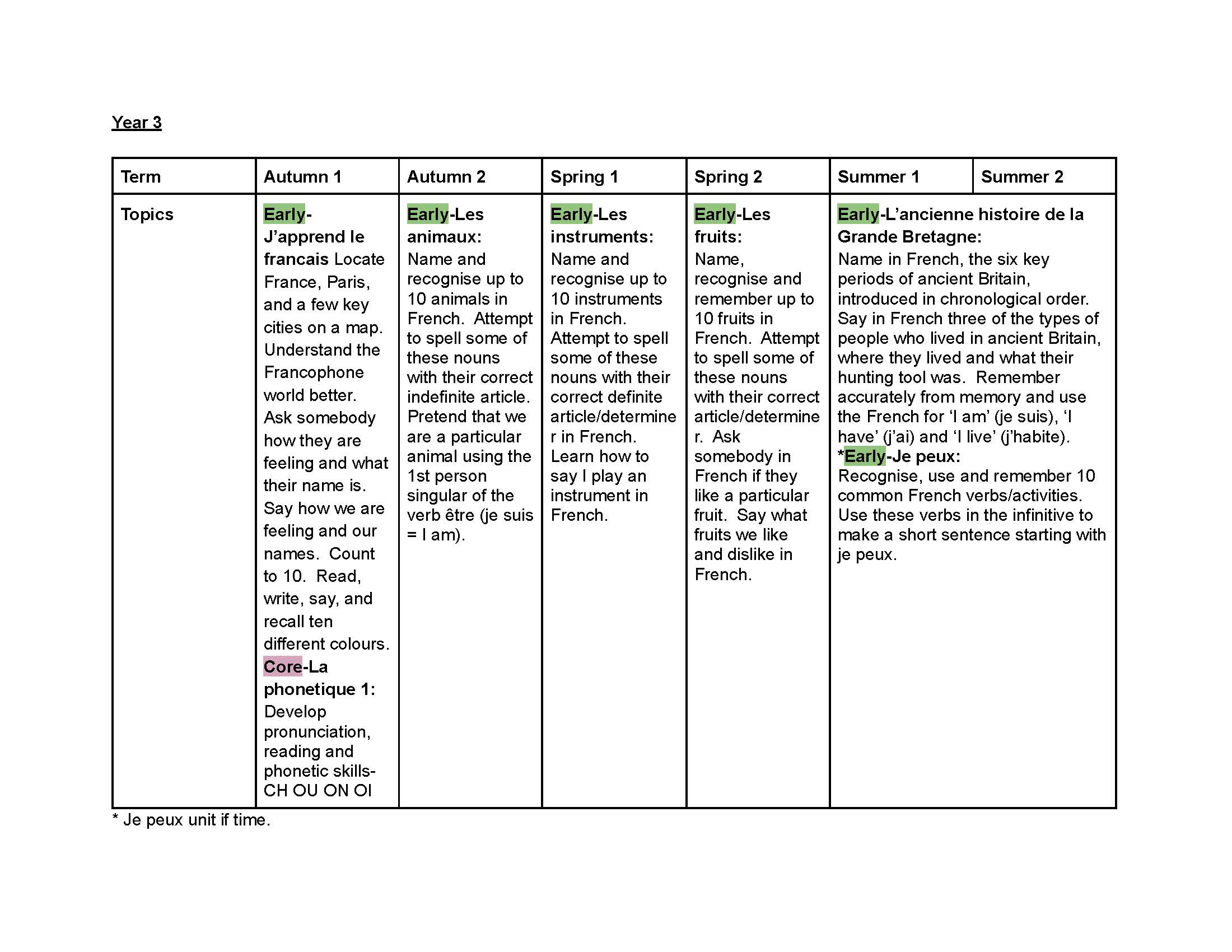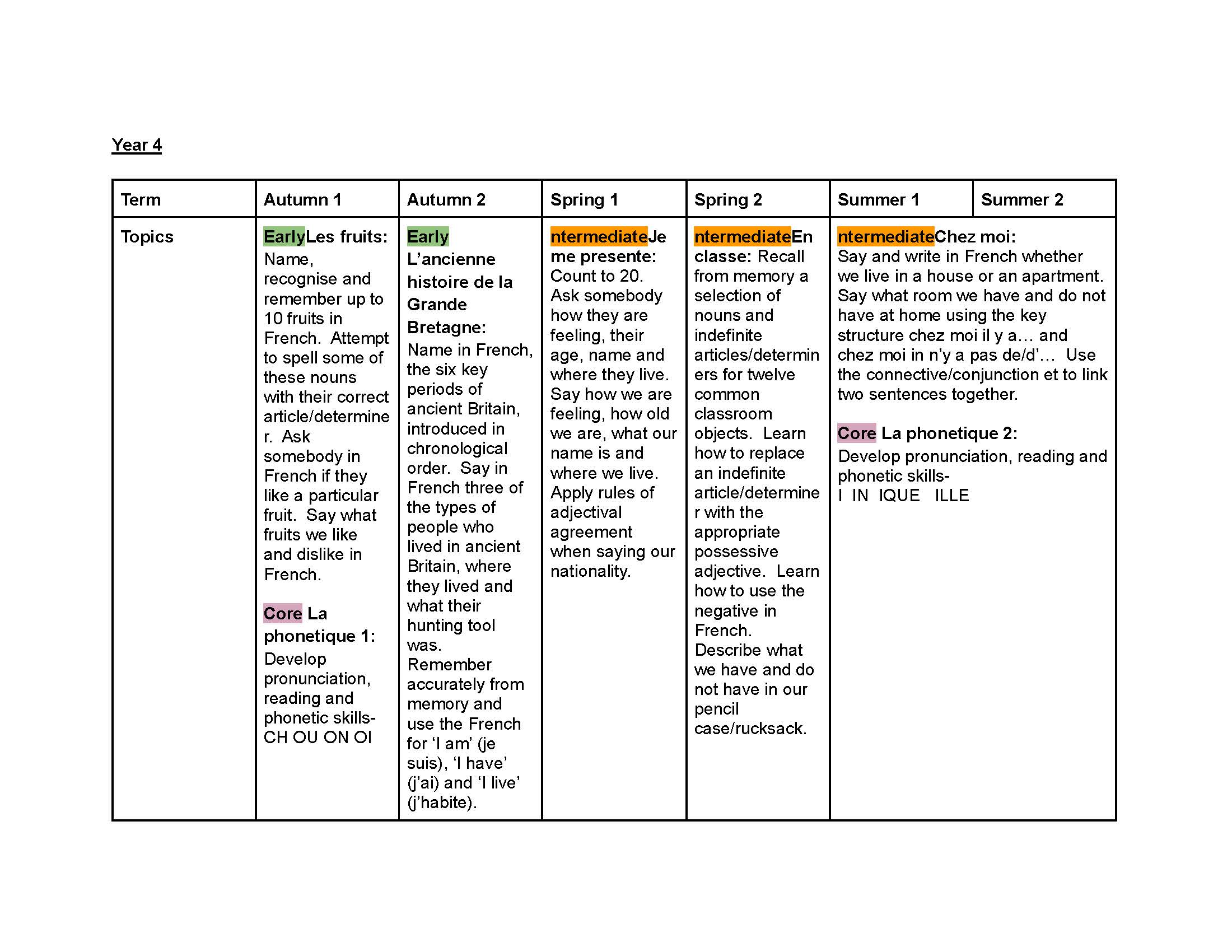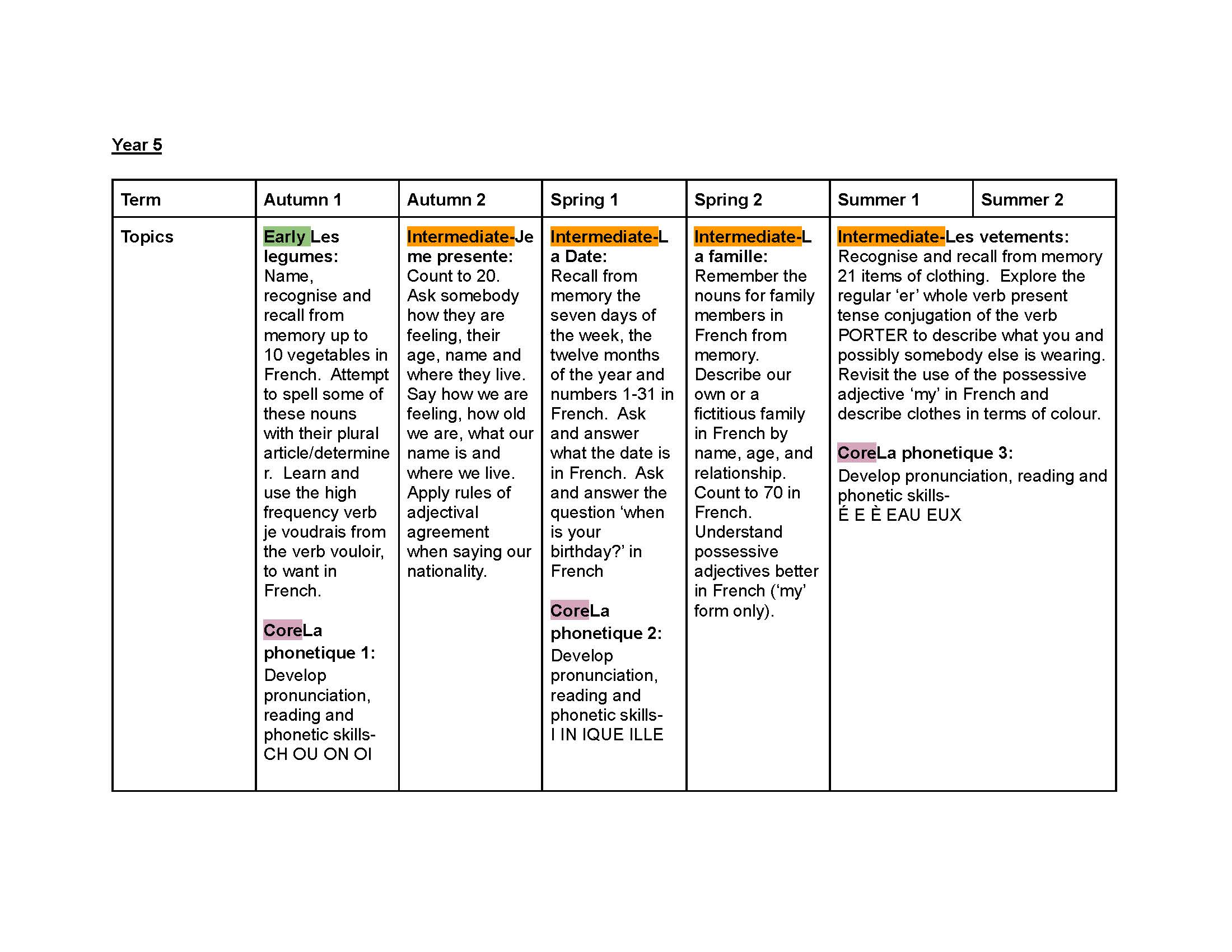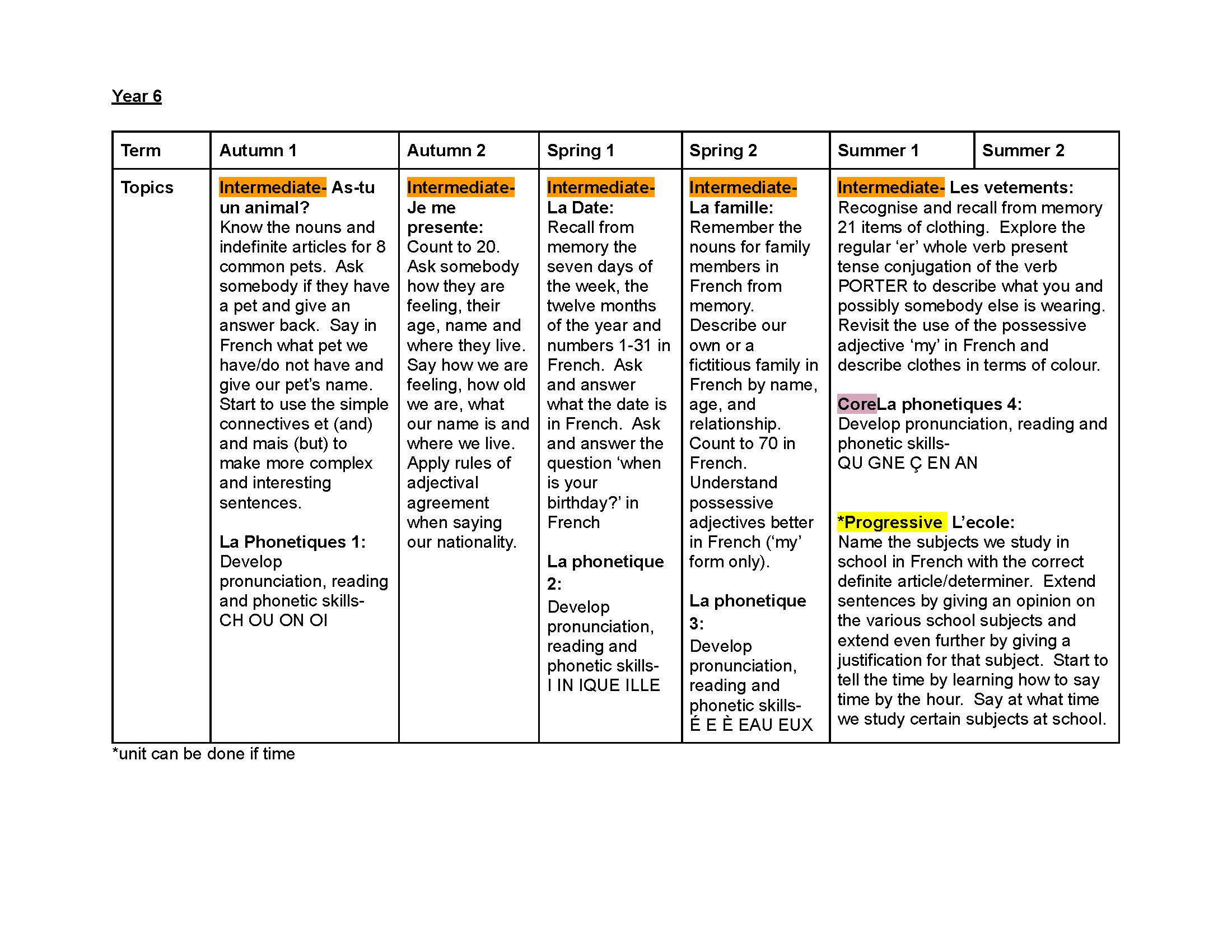Curriculum - Modern Foreign Language [MFL]
Intent and Impact:
Intent
Why learn a language?
- to provide an opening to other cultures.
- to deepen understanding of the world.
- to express their ideas and thoughts in another language
- to understand and respond to its speakers, both in speech and in writing.
- to lay the foundations for further foreign language teaching at key stage
3.
Impact
What will children learn to do?
- Listen attentively to spoken language, join in and respond
- Explore the patterns and sounds of the language, for example through songs
and rhymes
- Engage in conversations, ask and answer questions, express opinions, and
seek clarification and help
- Speak in sentences using familiar vocabulary, phrases and language structures
- Develop accurate pronunciation and intonation
- Present ideas and information orally to a range of audiences
- Read carefully, showing understanding of simple writing
- Appreciate stories, songs, poems and rhymes in the language
- Develop their vocabulary, including through using a dictionary
- Write phrases from memory and adapt them to create new sentences
- Describe people, places, things and actions verbally and in writing
- Understand basic grammar and high frequency verbs
- Apply Language learning skills to new unfamiliar language.
Implementation
How will children learn? French is taught primarily using the Language
Angels Scheme, which is linked to the DfE Languages Programme of Study
for KS2.
- Games – in order to develop vocabulary through repetition, reading, writing,
speaking and listening skills.
- Role-play – these should relate to the situations the children may find
themselves in the future.
- Action songs and rhymes – to develop phonetic skills, memory skills and
to further vocabulary.
- Reading and writing quality materials.
- Practising 4 skills- speaking, listening, reading and writing
- ICT programs and websites
- Build children’s confidence through praise for any contribution they make
in the foreign language, however tentative.
- Spark the enthusiasm and lay good foundations for them at KS3.
Overview:
